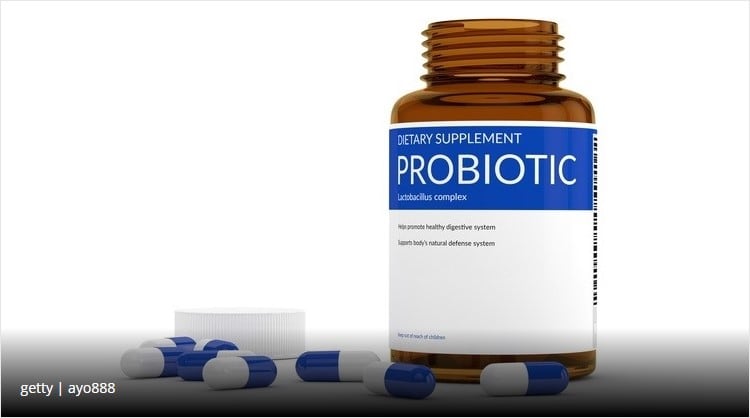What a year this has been for dietary supplements. Last December, industry observers were predicting industry growth of a healthy six percent for 2020. Then the pandemic hit and supplement sales soared. By April, some ingredients in the immune category were experiencing 100% growth and category growth generally is expected to end the year in double digits. Some of that early buying behavior was fueled by panicked pantry stocking, but unlike other consumer goods, whose sales soon returned to normal, supplements sales have continued to surge, never declining to pre-pandemic levels. Consumers are buying our products, using them, and buying again. Dietary supplements are on track to have one of their best growth years since the post-DSHEA boom of the late 1990s.
These sales have been advantageous, not just for our industry, but for retailers of all kinds too. Chain drug, grocery, club stores, e-commerce platforms, and even the natural channel, can credit some of their increased revenues to our products. CRN’s recent consumer survey demonstrates that many existing supplement users increased their usage, either adding new products to their regimens, increasing their dosages, or committing to take their supplements more faithfully. Recurring supplement purchases, eager adoption of new, “recommended for you” products, and the entry of new supplement users, have benefitted retail profits too; return trips to store locations or online websites, increases in “basket size” or total spend are all metrics near and dear to retail revenue.
Quality still an issue
Yet despite this revenue, retailers still express concern about the quality of the supplements they sell. They realize they have potential exposure if the products on their shelves (or offered through their websites) don’t deliver. So how do they know if their supplement offerings contain undisclosed or illegal ingredients? Do the ingredient levels in the bottle match what’s promoted on the label? Are these supplements well made in a facility compliant with federal GMP regulations? It’s no wonder they are a bit skittish even as they see sales rise. Think back to the existential crisis that rocked the supplement marketplace in 2015 with the New York Attorney General’s now debunked exposé on DNA testing of herbal supplements. Retailers took a hit. It was the retailers’ store brand products, not the major national brands that ended up on the front page of the New York Times. Since then, class action attorneys, other state AGs, and even the FTC have taken their swings at retailers of supplements. There’s no denying they have potential liability, and they are right to ask these questions about the goods they sell.
The problem is how retailers have decided to protect themselves. This year, in spite of the raging pandemic, several retailers—both traditional and e-commerce—have begun to roll out their own quality certification programs that must be met for vendors to stay on their shelves. Too often these programs are developed without meaningful input from the manufacturers themselves and too often they contain unique or exclusive features that make them different than other certification programs or require use of a specific lab. Presumably, these features are intended to suggest that consumers can trust the quality of products in their curated assortment more than their competitors. And the result will soon be a patchwork of retail certification schemes that disrupt national distribution programs and impose individualized hurdles—and costs—for brands to jump through to remain on shelf.
Quality should be price of admission
Quality should be the price of entry into the retail supplement marketplace. It should not be a point of differentiation that separates one retailer from another. Retailers can, and should compete, on convenience, shelf assortment, price, category management, first-to-market innovative offerings, and a host of other variables, but not quality. Consumers should be able to confidently walk into any store or click on any item from a reputable online retailer and know they are purchasing a quality product whose labeling matches what is inside the bottle. Quality certifications should use a common measuring stick, not ones concocted to frighten consumers about what’s being sold down the street.
The problem with these programs is not that retailers are taking initiative; brand marketers have long encouraged stores to take an active role in curating the supplements on their shelves. The shared effort to boost consumer trust is welcome news. But when retailers insist on developing their own unique standards that don’t mirror federal requirements or don’t appreciate the complexities of botanical mixtures, these unique testing protocols increase costs and burdens on manufacturers. At a time when retailers are working to squeeze inefficiencies out of the system, they are imposing new ones.
GRMA as a solution
Unfortunately, this development isn’t a surprise, as this year’s pandemic was. CRN has been predicting this situation for several years as we have dialogued with various retailers and heard their concerns. Creation of a coordinated measuring stick and getting agreement from retailers to stick with it are crucial. That’s why CRN began supporting the Global Retailers & Manufacturers Alliance (GRMA) several years ago and encouraged our members and retailers alike to come to the table and work toward harmonized standards. GRMA has made a lot of progress, developing an ANSI-credited standard for assessing compliance with good manufacturing practices, and now it is accrediting third-party certifiers who can audit facilities to those standards. Retailers should embrace them.
Facility audits are only half the issue though, because retailers are instituting their own product testing programs as well. They want assurance the products they sell are free of contaminants, actually contain the labeled levels of ingredients, and don’t contain undisclosed, illegal ingredients. But while product testing as a concept is laudable, it’s much more complicated than many realize. For many dietary ingredients, there is no consensus on a single method for verifying ingredient levels in a finished product. And this gets exponentially more complicated for multi-ingredient blends. That’s not to say methods don’t exist, but many manufacturers have developed proprietary assays to demonstrate their products meet label claims, and a third party certifier who receives a finished product in an overnight shipping package for independent verification may not use the same test, or understand why their test is inappropriate for that product.
Quality is a shared issue
Retailers and supplement manufacturers need to come together and recognize that quality testing is a common problem that needs a collective solution. Quality standards should be ecumenical, and third party certifiers can be accredited to use those standards without creating monopolies for a single testing lab. Just as our retail partners expect their vendors to work together to solve supply chain issues, they need to join us at the table on this one.
The pandemic has taught us a lot this year: collaboration is key. We can solve seemingly insurmountable obstacles when we work together. In that same spirit, the retailer quality certification crisis calls for that same collective spirit. It is possible to improve the quality of supplements on retailer shelves without adding bureaucracy and huge costs to a system that needs to be fast and lean as well as safe and transparent. But that will take a combined commitment to adopting harmonized standards that all retailers can use, that any reputable third party can implement on behalf of their clients, and that all manufacturers can achieve. For the sake of our consumers, let’s get going.




